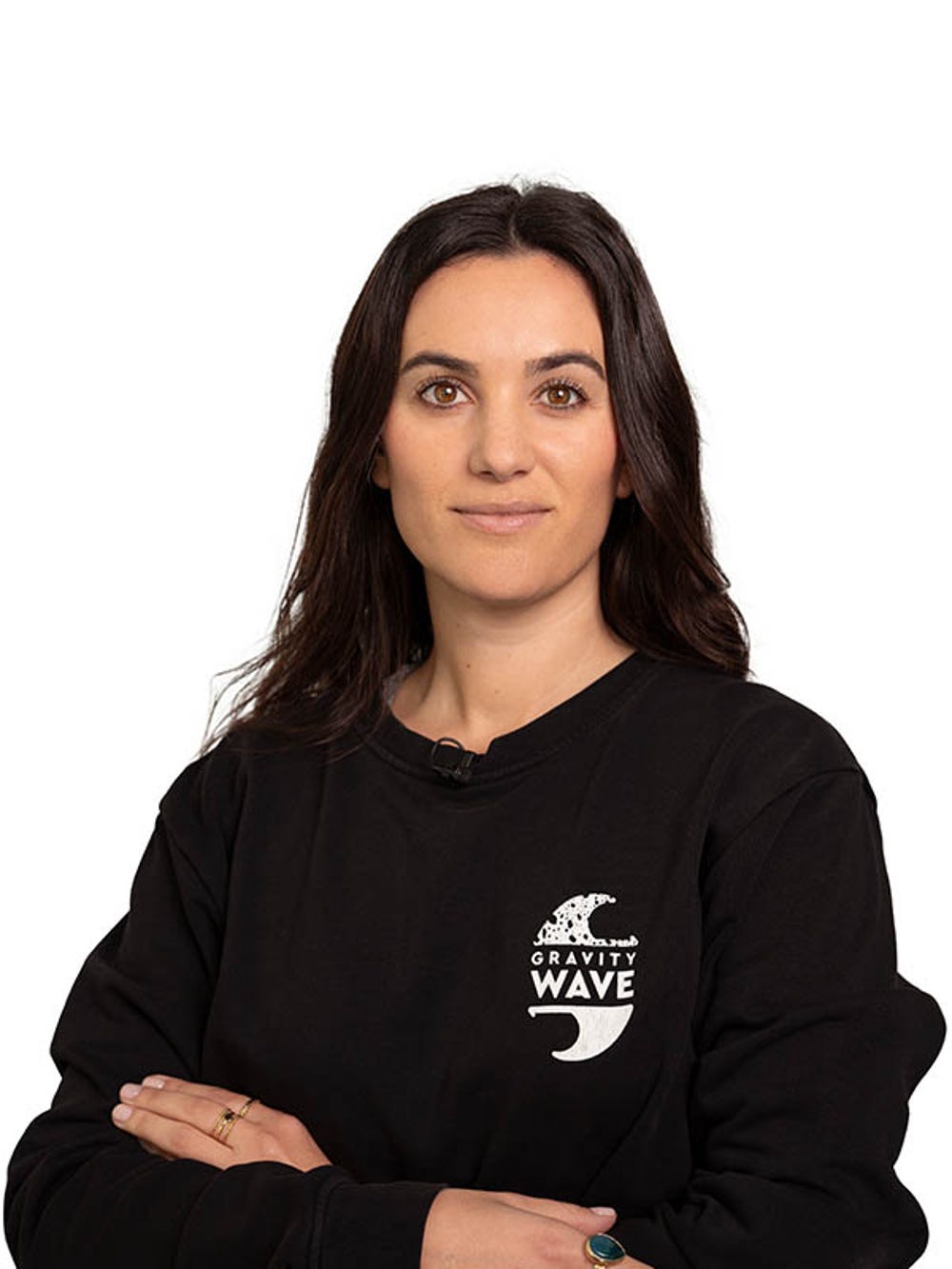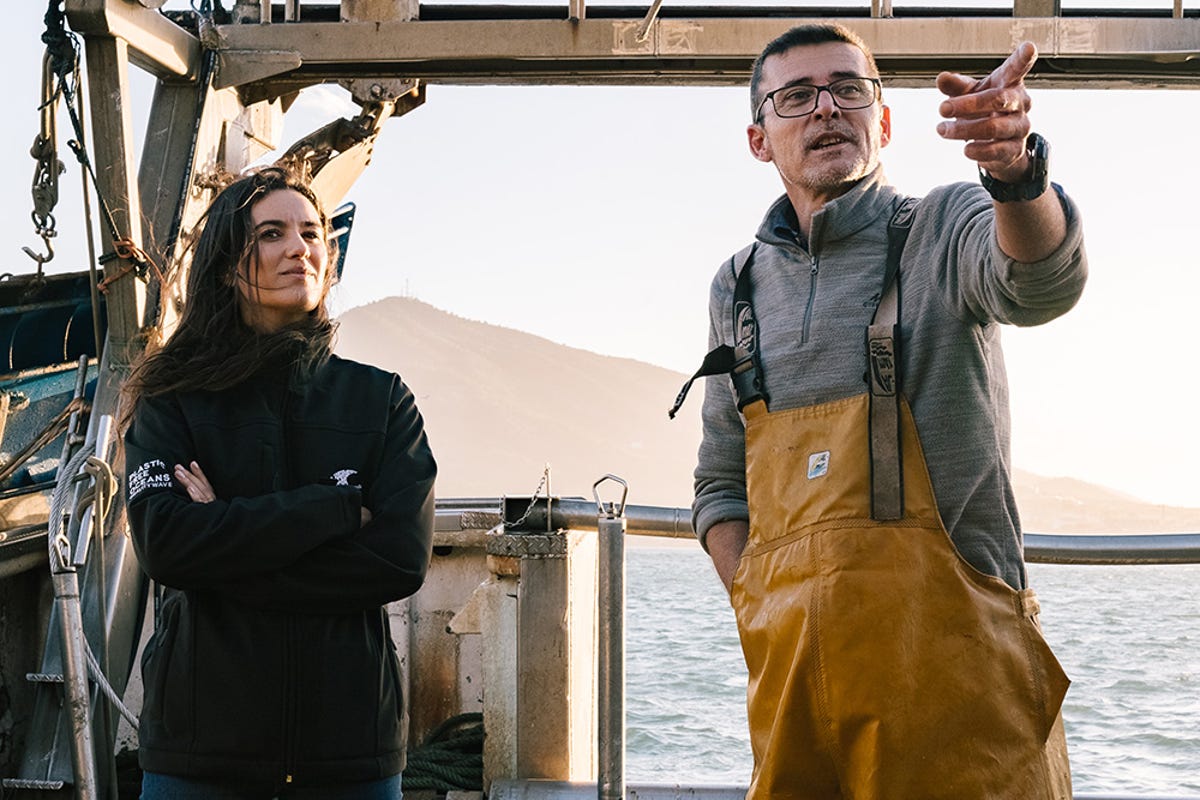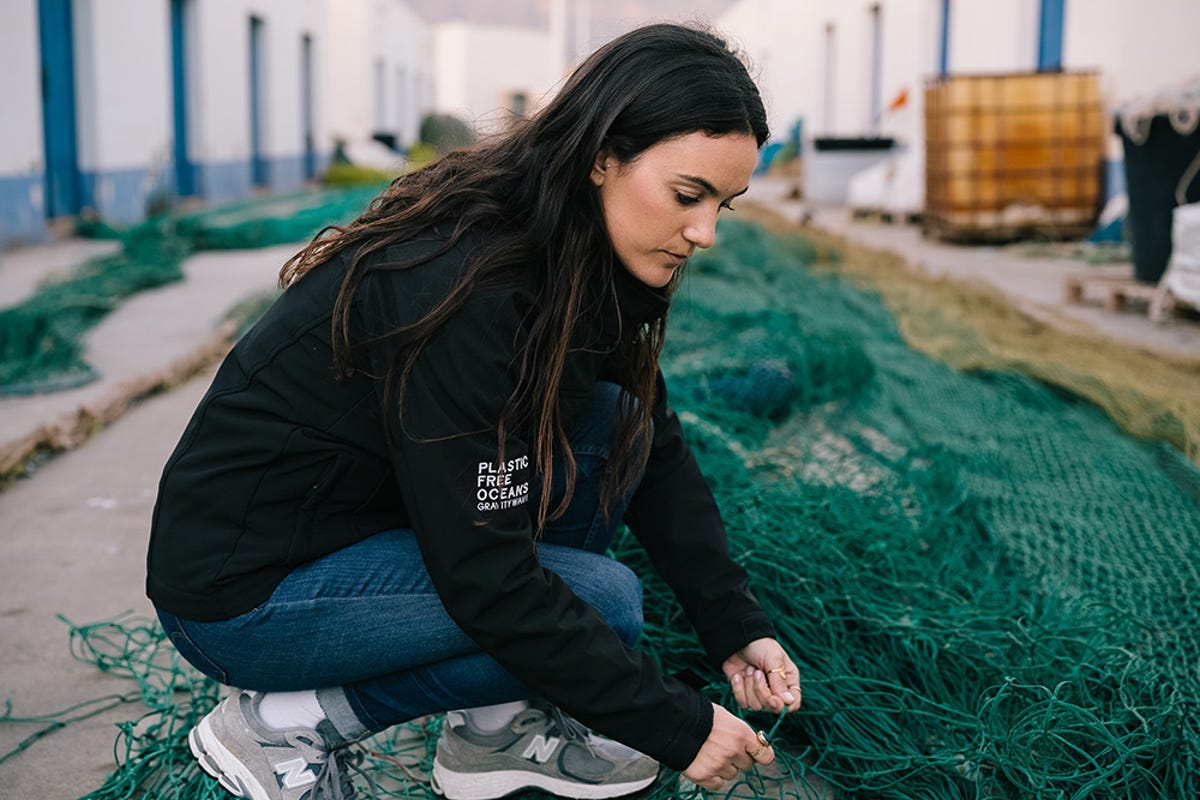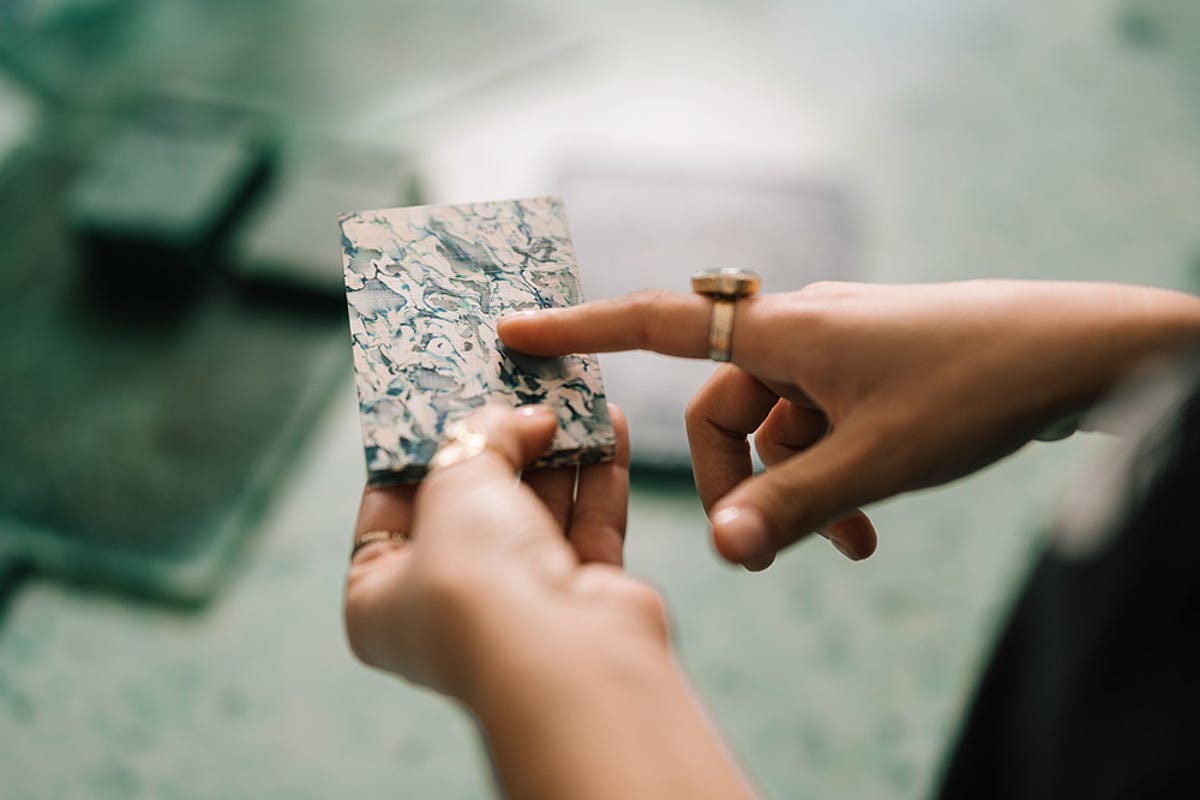Fellow Portrait
Amaia Rodríguez
Gravity Wave

Gravity Wave cleans up marine plastic and converts it into durable, sustainable furniture and products.
Europe
Spain
Fellow
2024
Updated March 2024
Fishing nets comprise the biggest portion of ocean plastics pollution
Approximately 19 million tons of plastic end up in lakes, rivers, and oceans annually—equalling almost two full freight trucks of plastic every minute. More than 40 percent of this waste comes from fishing gear, especially nets, which harm marine life and can take up to 1,000 years to degrade.
“Before Gravity Wave, most nets were being thrown into the oceans and landfills,” says Amaia Rodríguez, Gravity Wave’s Co-Founder and CEO. “Few companies were trying to recycle discarded fishing gear, even though it’s one of the biggest ocean polluters.”
Six years ago I saw the reality of plastic pollution in the ocean, and I couldn’t just stand by. I decided not to wait for someone else to do something about it. I was the person I’d been waiting for, so four years ago, I founded Gravity Wave to take action.

A collaborative effort collects, recycles, and transforms plastic fishing nets
The idea for Gravity Wave came to Amaia during a trip to Southeast Asia.
“I backpacked to these remote islands, and when I arrived, I saw plastic waste cluttering the beaches, which should have been a paradise,” Amaia recalls. “The image of nature drowned in our own creation really hit me. I began to see the world with different eyes and started researching plastic waste.”
Shocked by the harm plastics were causing to beaches and oceans, Amaia returned home and explained what she’d seen to her younger brother Julen. They decided to dedicate themselves to working toward a plastic-free ocean and developed a collaborative business model that enlists the fishing community, as well as companies committed to environmental responsibility, to turn plastic waste into sustainable and durable materials.
Gravity Wave partners with traditional fishermen in the Mediterranean Sea and the Atlantic Ocean to collect and deposit plastic waste, especially fishing nets, in special containers at various ports. The company and its partners then retrieve the material, recycle it, and transform it into furniture and raw materials for other products. “Corporate partners help finance Gravity Wave’s plastic collection efforts,” Amaia says.
What’s really inspiring to us is motivating people. At first the fishermen weren’t interested in anything that didn’t relate to fishing, but then their mindset began changing. Now they’re excited to show us how much they’ve collected and what they’ve found. They want to be part of the solution.

Plastic waste gets a second life
Since 2020, Gravity Wave has collected more than 534,000 kilograms (534 tons) of plastic and fishing nets, thanks to its network of 7,000 fishermen in 150 ports across Spain, Italy, Greece, and Egypt. More than 120 companies—such as automotive manufacturer MINI—sponsor waste collection projects and buy raw materials for producing new recycled products.
The company uses blockchain technology to measure and trace every kilogram of waste from collection to the final recycled product. “This allows us to be fully transparent with our impact and have very clear information on the waste we’re collecting,” Amaia explains. “We can use this information to prevent this type of waste from entering the oceans.”
Over the next year, Gravity Wave hopes to reach its goal of collecting and transforming a thousand tons of plastic and bringing new recycled materials to market. The company also hopes to scale the solution to more countries in the Mediterranean.
In Gravity Wave, we’ve built a value chain by taking plastic that was considered waste and turning it into something of value. And when people see that something has value, they don’t throw it away. It’s a real solution for a worldwide problem, and we can really make a difference.




